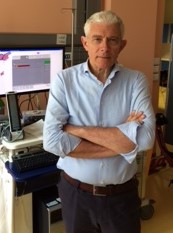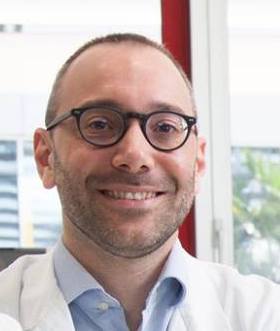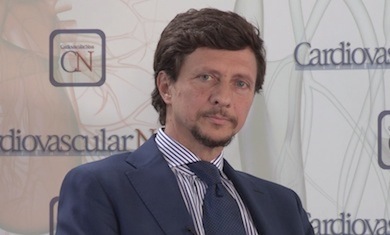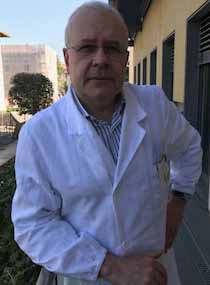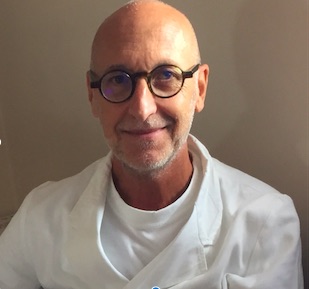Studying at the University of Verona
Here you can find information on the organisational aspects of the Programme, lecture timetables, learning activities and useful contact details for your time at the University, from enrolment to graduation.
Academic calendar
The academic calendar shows the deadlines and scheduled events that are relevant to students, teaching and technical-administrative staff of the University. Public holidays and University closures are also indicated. The academic year normally begins on 1 October each year and ends on 30 September of the following year.
Course calendar
The Academic Calendar sets out the degree programme lecture and exam timetables, as well as the relevant university closure dates..
| Period | From | To |
|---|---|---|
| FISIO VR 2^ ANNO - 1^ SEMESTRE | Oct 2, 2017 | Nov 10, 2017 |
| FISIO VR 3^ ANNO - 1^ SEMESTRE | Oct 2, 2017 | Nov 10, 2017 |
| FISIO VR 1^ ANNO - 1^ SEMESTRE | Oct 9, 2017 | Dec 7, 2017 |
| FISIO VR 2^ ANNO - 2^ SEMESTRE | Jan 29, 2018 | Mar 16, 2018 |
| FISIO VR 1^ ANNO - 2^ SEMESTRE | Mar 5, 2018 | Apr 27, 2018 |
| FISIO VR 3^ ANNO - 2^ SEMESTRE | Mar 5, 2018 | Mar 29, 2018 |
| Session | From | To |
|---|---|---|
| FISIO VR SESSIONE INVERNALE | Jan 8, 2018 | Jan 26, 2018 |
| FISIO VR SESSIONE ESTIVA | Jul 2, 2018 | Jul 31, 2018 |
| FISIO VR SESSIONE AUTUNNALE | Sep 3, 2018 | Sep 28, 2018 |
| Session | From | To |
|---|---|---|
| FISIO SESSIONE AUTUNNALE | Nov 1, 2018 | Nov 30, 2018 |
| FISIO SESSIONE PRIMAVERILE | Mar 1, 2019 | Apr 30, 2019 |
| Period | From | To |
|---|---|---|
| All Saints Day | Nov 1, 2017 | Nov 1, 2017 |
| Immaculate Conception | Dec 8, 2017 | Dec 8, 2017 |
| Christmas break | Dec 22, 2017 | Jan 7, 2018 |
| Easter break | Mar 30, 2018 | Apr 3, 2018 |
| Liberation Day | Apr 25, 2018 | Apr 25, 2018 |
| Labour Day | May 1, 2018 | May 1, 2018 |
| Patron Saint Day | May 21, 2018 | May 21, 2018 |
| Republic Day | Jun 2, 2018 | Jun 2, 2018 |
| VACANZE ESTIVE | Aug 6, 2018 | Aug 19, 2018 |
| Description | Period | From | To |
|---|---|---|---|
| FISIO VR 3^ anno - 1^semestre (1 periodo) | FISIO VR 3^ anno - 1^semestre (1 periodo) | Nov 13, 2017 | Dec 21, 2017 |
| FISIO VR 2^ anno - 1^semestre | FISIO VR 2^ anno - 1^semestre | Nov 20, 2017 | Dec 21, 2017 |
| FISIO VR 3^ anno - 1^semestre (2 periodo) | FISIO VR 3^ anno - 1^semestre (2 periodo) | Jan 29, 2018 | Mar 2, 2018 |
| FISIO VR 1^ anno - 1^semestre | FISIO VR 1^ anno - 1^semestre | Jan 29, 2018 | Mar 2, 2018 |
| FISIO VR 2^ anno - 2^semestre | FISIO VR 2^ anno - 2^semestre | Mar 26, 2018 | Jun 22, 2018 |
| FISIO VR 3^ anno - 2^semestre | FISIO VR 3^ anno - 2^semestre | Apr 4, 2018 | Jun 22, 2018 |
| FISIO VR 1^ anno - 2^semestre | FISIO VR 1^ anno - 2^semestre | May 7, 2018 | Jun 22, 2018 |
Exam calendar
Exam dates and rounds are managed by the relevant Medicine Teaching and Student Services Unit.
To view all the exam sessions available, please use the Exam dashboard on ESSE3.
If you forgot your login details or have problems logging in, please contact the relevant IT HelpDesk, or check the login details recovery web page.
Academic staff
 davide.adamoli@univr.it
davide.adamoli@univr.it
 raffaella.bellini@univr.it
raffaella.bellini@univr.it
 cinzia.biondani@ospedaleuniverona.it
cinzia.biondani@ospedaleuniverona.it
 giorgio.borghesan@libero.it
giorgio.borghesan@libero.it
 ricerca@eomitalia.it
ricerca@eomitalia.it
 davideconte.bioeng@gmail.com
davideconte.bioeng@gmail.com
 annamaria.molino@univr.it
annamaria.molino@univr.it
 nicola.pelizzari@univr.it
nicola.pelizzari@univr.it
 alessandra.zivelonghi@aovr.veneto.it
alessandra.zivelonghi@aovr.veneto.it
Study Plan
The Study Plan includes all modules, teaching and learning activities that each student will need to undertake during their time at the University.
Please select your Study Plan based on your enrollment year.
1° Year
| Modules | Credits | TAF | SSD |
|---|
2° Year activated in the A.Y. 2018/2019
| Modules | Credits | TAF | SSD |
|---|
3° Year activated in the A.Y. 2019/2020
| Modules | Credits | TAF | SSD |
|---|
| Modules | Credits | TAF | SSD |
|---|
| Modules | Credits | TAF | SSD |
|---|
| Modules | Credits | TAF | SSD |
|---|
Legend | Type of training activity (TTA)
TAF (Type of Educational Activity) All courses and activities are classified into different types of educational activities, indicated by a letter.
Legal, bioethic and deontological principles of professional practice (2019/2020)
The teaching is organized as follows:
Learning outcomes
------------------------
MM: DINAMICHE RELAZIONALI NEL LAVORO DI GRUPPO
------------------------
The objectives of this course are: 1. to know some of the main theoretical approaches to group studies; 2. to understand and recognize the distinctive features of groups and working teams; 3. to learn the theoretical models about organizational socialization.
------------------------
MM: MEDICINA LEGALE E BIOETICA
------------------------
The aim of the course is providing to the students the basic knowledge principles necessary for facing the numerous medico legal and bioethics issues which they will meet as physical therapists. In this frame, the attention will be mainly focused on the legal, medico legal and bioethical issues of informed consent, patient restraints and of end life care.
------------------------
MM: SOCIOLOGIA DEI PROCESSI ECONOMICI E DEL LAVORO SANITARIO
------------------------
The course aims to bring the students to reflect sociologically on the concepts of work and organizational processes with particular attention to the healthcare field, trying to understand the nature, characteristics and relationships with the current social context in order to improve their action as rehabilitation professional in a context of complexity. The course aims to promote understanding of organizational processes in relation to the latest transformations, characteristics, risks and challenges of the current social context within which complex organizations are moving. For this, students will first provide the tools to reflect both on the variables that make up an organization and organizational models; so you will have some insight into some organizational processes characterizing the rehabilitative intervention and related dynamics, with particular attention to organizational change, work organization and multi-ethnicity. The aim of the course is to offer students a sort of "toolbox" to address today's complexity, reflecting on their professional activity, broadening their perspective, developing their own judgment, communication and relationship skills with the patient both in the organizational context. At the end of the course, the expected learning outcomes are related to two areas: A) KNOWLEDGE AND UNDERSTANDING 1. of the sociological aspects characterizing the relationship between complexity and the health system 2. of the processes of change of work from the point of view of the different actors involved and their relations with the more general context; 3. of the processes characterizing the organizations with particular reference to those of differentiation and integration; 4. cultural and communicative processes as fundamental in the relationship between organizations and complexity. B) CAPACITY 1. to apply the knowledge learned in order to identify and describe the organizations in relation to the current context; 2. to analyze and understand the organizational processes, especially the cultural and communicative ones and their dynamics; 3. to recognize, observing with different points of view, the processes and languages that characterize the work environment in relation to the diversity that characterizes them, in order to promote positive and virtuous relationships within the organization and in relations with the outside world; 4. to use the concepts learned as a sort of "toolbox" to deal with today's complexity, reflecting on one's professional action, widening one's point of view, developing one's own judgment, communication and relationship skills both with the patient both with the organizational context.
------------------------
MM: ORGANIZZAZIONE DEI SERVIZI SANITARI
------------------------
Know the fundamentals of the legislation and organization of the Italian National Health System (SSN) and its regional organization (Veneto Region) and local level (AULSS, Hospitals and Districts). Know the meaning of the Essential Assistance Levels (LEA) with particular regard to the regional LEA and those LEA related to physiotherapy performance and services. Know the basics of SSN funding and health planning. Understand the contents of a scientific article related to the organization, management and evaluation of SSN Health System.
------------------------
MM: MEDICINA DEL LAVORO
------------------------
To acquire basic knowledge and understanding on health and safety prevention and health promotion and management in workplaces. To acquire, through field examples, knowledge and understanding about general principles of occupational health, risk assessment, health surveillance, fitness for work, health education, legislation, with reference to different risk factors (e.g., chemicals, physical agents, biohazards, ergonomics, organization and psychosocial factors, injuries). Specific objective is to acquire knowledge, awareness and understanding about biomechanical overload for limbs and low back in the workplaces as well as to return to work and rehabilitation programs for workers. Attention will be dedicated to let the student acquire knowledge and understanding about the roles of the different professionals and institutions committed to prevention. The student will acquire perception and awareness on the main risk factors, adverse effects and their prevention in the professional activities of physiotherapists and will gain awareness on the role of physiotherapists in cooperating with health and safety professionals at the workplaces, especially in risk assessment, health education, return to work and rehabilitation programs for workers.
Program
MM: DINAMICHE RELAZIONALI NEL LAVORO DI GRUPPO
------------------------
Students who aim to achieve the goals of this course have to master these key concepts: the theories of groups; the definitions, the characteristics, the cathegorizations and the main functions of the groups; the group phenomena and dynamics; the group socialization and the phases of its development; the work in teams; the occupational socialization.
------------------------
MM: MEDICINA LEGALE E BIOETICA
------------------------
Criminal Law and Legal Medicine - causal relationship - homicide and injuries Patient-Clinician relationship - informed consent - debarment - doctor-patient confidentiality Reporting medical information to the Prosecutor’s Office and to the Health Care Administration Italian government insurances against work related injuries and professional diseases Italian government system for legal disability Disability compensation in Civil Law Introduction to Bioethics - Methods in Bioethics - Bioethical Issues in patient restraints - Bioethical issues concerning deaths
------------------------
MM: SOCIOLOGIA DEI PROCESSI ECONOMICI E DEL LAVORO SANITARIO
------------------------
The course program includes reflection on the following topics: • "Liquid" modernity and the effects on society and the individual • Work and organizations: from the contribution of classics to current studies • The organizational processes and dynamics • The cultural aspects of organization • Organizational change • Health /rehabilitative organizations and the context: multi-ethnicity and the challenges of diversity The didactic methods adopted include: - frontal lessons devoted to the transmission of basic notions and key categories useful for the implementation of theoretical knowledge; - interactive lessons, through video analysis and sample material, common discussion, group work and exercises, and wherever possible, the participation of privileged witnesses in order to improve the skills of learning, applied understanding, work in team, relationship and communication. Throughout the academic year, the teacher is available for individual appointment by appointment. The monthly reception schedule is published on the web under the "Alerts" entry. Reference texts Three texts are needed to support the exam 1. A short essay based on Mintzberg H., La progettazione dell'organizzazione aziendale, il Mulino, Bologna, 1996 (cap.1) 2. Radicchi D., Cultura d’impresa e gestione del cambiamento: analisi e riorientamento dei valori e della cultura organizzativa, Gentes, anno I numero 1 - dicembre 2014 , PP.135-142 3. Geraci S., El Hamad I., Migranti e accessibilità ai servizi sanitari: luci e ombre, IJPH - Year 9, Volume 8, Number 3, Suppl. 3, 2011
------------------------
MM: ORGANIZZAZIONE DEI SERVIZI SANITARI
------------------------
- History, foundation and regulation of Italian National Health System (SSN) organization - Fundamental and regulation of the Italians Regional Health Systems (SSR) organizations - Fundamental and regulation of Italian local heath agency : AULSS and Hospitals - The national and regional essential levels of assistance (LEA) - Authorization and accreditation of Italian health services framework - The financing of SSN and SSR - The company budget - The Physiotherapist professional profile in SSN context - Ho to get a SSN job: the Italian public competition
------------------------
MM: MEDICINA DEL LAVORO
------------------------
1) General principles of occupational health and safety and prevention in workplaces 2) National laws, rules and regulations on prevention, health and safety in the workplace 3) Occupational health and safety professionals and institutions 4) Occupational hazards and risks. Work-related diseases. Occupational injuries 5) Risk assessment. Health surveillance. Fitness for work. Health education. Medico-legal obligations. 6) Occupational Health for health care workers. Risk factors: chemicals, physical and biological agents, ergonomics, organizative and psychosocial. 7) Manual handling of materials and patients. 8) Biomechanical overload of limbs. 9) Return to work and rehabilitation.
Bibliography
| Author | Title | Publishing house | Year | ISBN | Notes |
|---|---|---|---|---|---|
| A. Cazzaniga, C.M. Cattabeni, R. Luvoni, R. Zoja | Compendio di Medicina Legale e delle Assicurazioni (Edizione 13) | UTET Giuridica | 2015 | ||
| Silingardi Enrico | Medicina Legale per i Corsi di Laurea ad orientamento Giuridico e Triennali (Edizione 1) | Edizioni Idelson-Gnocchi 1908 srl | 2020 | ||
| G. Veronelli | Compendio di Diritto Sanitario (Edizione 2013) | Simone | 2013 | 9788824437486 | |
| Tomei F, Candura SM, Sannolo N, Sartorelli P, Costa G, perbellini L, Larese Filon F, Maestrelli P, Magrini A, Bartolucci GB, Ricci S. | Manuale di Medicina del Lavoro | Piccin Nuova libraria S.p.A. Padova | 2019 | 978-88-299-2902-3 |
Examination Methods
------------------------
MM: DINAMICHE RELAZIONALI NEL LAVORO DI GRUPPO
------------------------
The final grade for this course will be based on a 30 minute in-class exam. The exam consists in four open questions which request concise answers.
------------------------
MM: MEDICINA LEGALE E BIOETICA
------------------------
Multiple choice test
------------------------
MM: SOCIOLOGIA DEI PROCESSI ECONOMICI E DEL LAVORO SANITARIO
------------------------
The assessment of learning outcomes involves a written test consisting of a multiple-choice test to ensure the ability to learn and the degree of knowledge of the topics under consideration. The final evaluation is expressed in 30/30.
------------------------
MM: ORGANIZZAZIONE DEI SERVIZI SANITARI
------------------------
One-answer test (30 questions)
------------------------
MM: MEDICINA DEL LAVORO
------------------------
The examination is an oral assessment.
Career prospects
Module/Programme news
News for students
There you will find information, resources and services useful during your time at the University (Student’s exam record, your study plan on ESSE3, Distance Learning courses, university email account, office forms, administrative procedures, etc.). You can log into MyUnivr with your GIA login details: only in this way will you be able to receive notification of all the notices from your teachers and your secretariat via email and also via the Univr app.
Gestione carriere
Graduation
Documents
| Title | Info File |
|---|---|
|
|
pdf, it, 367 KB, 19/02/24 |
|
|
pdf, it, 142 KB, 19/01/24 |
|
|
pdf, it, 862 KB, 19/01/24 |
|
|
pdf, it, 273 KB, 25/03/24 |
Appelli d'esame
AVVISO IMPORTANTE
Gli appelli d’esame si aprono per l’intero Insegnamento e non per singoli moduli.
Per il singolo modulo di cui non è stato aperto appello, come sopra descritto, una settimana prima dell'esame, è OBBLIGATORIO comunicare, utilizzando la propria mail istituzionale o di classe, al/i docente/i, l’intenzione di sostenere l’esame stesso.
Negli allegati, divisi per anno, sono indicate, dove comunicate dai Coordinatori d’Insegnamento, tutte le date, gli orari, le aule e le modalità degli esami.
L’iscrizione agli APPELLI D'ESAME APERTI ON LINE è OBBLIGATORIA.
Documents
| Title | Info File |
|---|---|
|
|
pdf, it, 260 KB, 13/09/24 |
|
|
pdf, it, 234 KB, 29/07/24 |
|
|
pdf, it, 170 KB, 02/08/24 |
|
|
pdf, it, 313 KB, 02/10/23 |
Tirocinio professionalizzante
Finalità del Tirocinio Le attività di tirocinio sono finalizzate a far acquisire allo studente le competenze specifiche previste dal profilo professionale. Per conseguire tali finalità formative, si possono attivare convenzioni con strutture che rispondano ai requisiti di idoneità per attività, dotazione di servizi e strutture. I 60 crediti minimi riservati al tirocinio sono da intendersi come impegno complessivo necessario allo studente per raggiungere le competenze professionali “core” previste dal rispettivo profilo professionale. Il tirocinio professionale comprende: - sessioni tutoriali che preparano lo studente all’esperienza; - esercitazioni e simulazioni in cui si sviluppano le abilità tecniche, relazionali e metodologiche in situazione protetta prima o durante la sperimentazione nei contesti reali; - esperienze dirette sul campo con supervisione; - sessioni tutoriali e feedback costanti; - compiti didattici, elaborati e approfondimenti scritti specifici e mandati di studio guidato. La valutazione delle competenze acquisite in tirocinio Le esperienze di tirocinio devono essere progettate, valutate e documentate nel percorso dello studente. Durante ogni esperienza di tirocinio lo studente riceve valutazioni formative sui suoi progressi sia attraverso colloqui e schede di valutazione. Al termine di ciascun anno di corso viene effettuata una valutazione certificativa per accertare i livelli raggiunti dallo studente nello sviluppo delle competenze professionali attese. Tale valutazione è la sintesi delle valutazioni formative via via documentate durante l’anno di corso, il profitto raggiunto negli elaborati scritti e le performance dimostrate all’esame di tirocinio che può essere realizzato con colloqui, prove scritte applicative, esami simulati. La valutazione annuale è certificata da una Commissione presieduta dal Coordinatore della didattica professionale e composta almeno da un docente e da un Tutor Clinico. La valutazione certificativa del tirocinio sarà espressa in trentesimi in base al livello di raggiungimento degli obiettivi. Verrà registrato come “ritirato” lo studente che sospende il tirocinio per problemi di salute, gravidanza o per motivazioni personali; sarà registrata come “respinto” quando lo studente durante il percorso o alla fine del tirocinio non ha raggiunto livelli sufficienti negli obiettivi formativi. L’esame annuale di tirocinio prevede un unico appello per anno accademico, salvo particolari situazioni per le quali la commissione didattica potrà concedere un appello straordinario. Prerequisiti di accesso al tirocinio Il Coordinatore della didattica professionale ammette alla frequenza dell’esperienza di tirocinio previsto per l’anno di corso gli studenti che: hanno frequentato regolarmente le attività teoriche, in particolare gli insegnamenti delle discipline professionali dell’anno in corso e dell’anno precedente; hanno partecipato regolarmente ai laboratori professionali ritenuti propedeutici al tirocinio Assenze dal tirocinio Lo studente che si assenta dal tirocinio per periodi brevi (assenze inferiori ad una settimana durante l’anno solare) può recuperare tali assenze su autorizzazione del tutor/clinico salvaguardando orari che offrono opportunità di apprendimento. Non sono ammessi recuperi di giornate isolate al di fuori del periodo dedicato al tirocinio. Lo studente che si assenta dal tirocinio per periodi lunghi (assenze superiori ad una settimana nell’anno solare) – per gravi e giustificati motivi – deve concordare con il Coordinatore della didattica professionale un piano di recupero personalizzato. Lo studente che conclude positivamente il tirocinio di anno con un debito orario sul monte ore previsto (non superiore a 15 ore), può essere ammesso all’esame annuale di tirocinio se l’assenza non ha compromesso il raggiungimento degli obiettivi di anno e può recuperare il suddetto debito entro la fine del 3° anno. Lo studente è tenuto a documentare le ore di presenza in tirocinio nel libretto, a farle controllare e controfirmare dal tutor e segnalare tempestivamente l’esigenza di recupero di eventuali assenze. Sospensione dal tirocinio Le motivazioni che possono portare alla sospensione dal tirocinio sono le seguenti: Motivazioni legate allo studente: - studente potenzialmente pericoloso per la sicurezza degli utenti/tecnologia o che ha ripetuto più volte errori che mettono a rischio la vita dell’utente; - studente che non ha i prerequisiti e che deve recuperare obiettivi formativi propedeutici ad un tirocinio formativo e sicuro per gli utenti; - studente che frequenta il tirocinio in modo discontinuo. Altre motivazioni: - stato di gravidanza nel rispetto della normativa vigente; - studente con problemi psicofisici che possono comportare stress o danni per lui, per i malati o per l’équipe della sede di tirocinio o tali da ostacolare le possibilità di apprendimento delle competenze professionali core. La sospensione temporanea dal tirocinio è proposta dal tutor al Coordinatore della didattica professionale tramite apposita relazione, che verrà discussa e motivata in un colloquio con lo studente. La sospensione è formalizzata con lettera del Coordinatore della didattica professionale allo studente. La riammissione dello studente al tirocinio è concordata con tempi e modalità definite dal Coordinatore della didattica professionale sentito il tutor che l’ha proposta. Qualora persistano le difficoltà che hanno portato alla sospensione temporanea dal tirocinio o ci sia un peggioramento che impedisce l’apprendimento delle abilità professionali, il Coordinatore della didattica professionale ha facoltà di proporre al Collegio Didattico la sospensione definitiva dello studente dal tirocinio tramite apposita relazione che documenti approfonditamente le motivazioni Studenti ripetenti per profitto insufficiente in tirocinio. Lo studente ripetente per un profitto insufficiente in tirocinio concorda con il Coordinatore della didattica professionale un piano di recupero personalizzato sulla base dei propri bisogni formativi che potrà prevedere un prolungamento dell’attività di tirocinio. Per essere ammesso a frequentare l’esperienza di tirocinio prevista dal piano di recupero personalizzato, allo studente ripetente è richiesto di Pag. 8 di 12 aver ripetuto le esperienze di laboratorio ritenute propedeutiche al tirocinio dal Coordinatore della didattica professionale. Lo studente insufficiente in tirocinio non può ripetere più di una volta il tirocinio per ogni anno di corso. Ciò vale anche nel caso in cui lo studente sospenda il tirocinio prima del termine previsto dal calendario e non si presenti all’Esame Annuale di Tirocinio. Tirocinio supplementare È possibile attivare un tirocinio supplementare in due casi: - studente ripetente o fuori corso, che abbia superato positivamente il tirocinio dell’anno in corso - studente che richieda un approfondimento tematico. Lo studente che richiede di svolgere un’esperienza supplementare dovrà rivolgersi al Coordinatore della didattica professionale che risponderà alle richieste compatibilmente con le esigenze organizzative. La frequenza dell’esperienza supplementare non deve interferire con il completamento dei suoi impegni di recupero teorico. L’esperienza supplementare dovrà essere valutata e registrata a tutti gli effetti sul libretto di tirocinio a scopi assicurativi, ma non potrà essere considerata un anticipo dell’anno successivo. h) Sciopero dei dipendenti delle strutture di tirocinio In caso di sciopero del personale dipendente delle strutture convenzionate per il tirocinio, che svolga attività di Guida, le esperienze di tirocinio saranno sospese. Tale assenza non dovrà essere recuperata, le ore saranno riconosciute come studio individuale
Per maggiori informazioni consultare la pagina del servizio
Orario lezioni
Si pubblicano gli orari delle lezioni relativi 1° semestre.
Gli orari potrebbero subire alcune modifiche; pertanto si consiglia di consultare l'orario delle lezioni giornalmente nell‘area riservata MyUnivr e/o ORARIO LEZIONI
Le lezioni si terranno:
1 ANNO - AULA VETTORE (salvo diverse indicazioni riportate nello slot orario)
2 e 3 ANNO - AULA E LENTE (salvo diverse indicazioni riportate nello slot orario)
Documents
| Title | Info File |
|---|---|
|
|
pdf, it, 166 KB, 16/09/24 |
|
|
pdf, it, 232 KB, 19/09/24 |
|
|
pdf, it, 217 KB, 10/09/24 |
|
|
pdf, it, 249 KB, 10/09/24 |
Student login and resources
Attività Seminariali/a scelta dello studente
Calendario delle Attività Seminariali tip F/a scelta dello studente
3 ANNO: 15/09/2022 SEMINARIO " EVIDENZE E PRASSI NELL'OSSERVAZIONE DEL PAZIENTE CON LOMBALGIA"
Documents
| Title | Info File |
|---|---|
|
|
pdf, it, 864 KB, 15/09/22 |
Modalità e sedi di frequenza
La frequenza è obbligatoria.
Maggiori dettagli in merito all'obbligo di frequenza vengono riportati nel Regolamento del corso di studio disponibile alla voce Regolamenti nel menu Il Corso. Anche se il regolamento non prevede un obbligo specifico, verifica le indicazioni previste dal singolo docente per ciascun insegnamento o per eventuali laboratori e/o tirocinio.
È consentita l'iscrizione a tempo parziale. Per saperne di più consulta la pagina Possibilità di iscrizione Part time.
Le sedi di svolgimento delle lezioni e degli esami sono le seguenti:

 +39 045 8027657
+39 045 8027657








